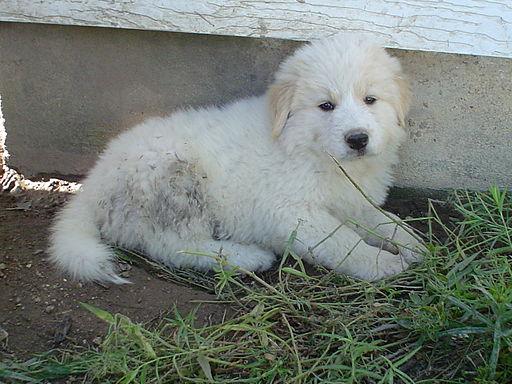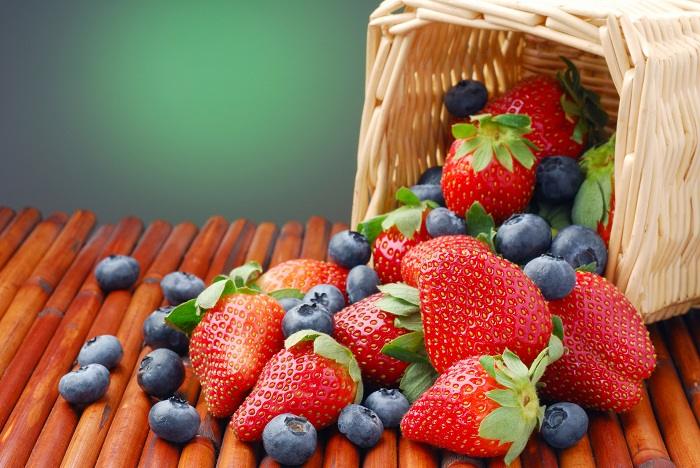Something that even the most seasoned gardeners often give little thought to is the quality of the soil they plan on growing their fruits, vegetables, and herbs in. The truth is that your soil is the heart and soul of your garden, so if the soil is not in excellent condition then you will find your plants’ growth being impeded. You’ll also find yourself with lackluster harvests. Fix the soil first and foremost! While it is certainly a great idea to consider which plants grow well together and consider trying out a few different varieties, if your soil isn’t filled with the best in nutrients then you’ll find yourself with every organic gardener’s nightmare – a failed growing year.
 Having purchased your new farm, you are likely incredibly excited and eager to get your seeds and seedlings in the ground. However, an unfortunately aspect to the majority of properties now is that the previous owners have given little to no thought to the products that they sprayed around the property. Harsh chemical weed killers like Round-Up have likely soaked the soil, and highly acidic chemical fertilizers have likely seeped into every corner of your land. So what can you do in order to restore your farm to a blissfully organic state? How can you ensure that you are fixing the soil of the nutrient stripping it has surely been subjected to?
Having purchased your new farm, you are likely incredibly excited and eager to get your seeds and seedlings in the ground. However, an unfortunately aspect to the majority of properties now is that the previous owners have given little to no thought to the products that they sprayed around the property. Harsh chemical weed killers like Round-Up have likely soaked the soil, and highly acidic chemical fertilizers have likely seeped into every corner of your land. So what can you do in order to restore your farm to a blissfully organic state? How can you ensure that you are fixing the soil of the nutrient stripping it has surely been subjected to?
Performing A Soil Analysis
Before you start adding piles of organic compost and other organic fertilizers, it is essential that you perform a soil analysis so that you can see where you are starting. This way you’ll be able to determine which course of treatment is going to be the most beneficial for your soil. Adding compost might just transform your soil into a zone that is so acidic that even tomatoes don’t want to grow in it!
There are a few other factors that could be to blame for your soil being so horribly depleted of vital nutrients, including the following:
- Poor agricultural practices, i.e. planting cabbages in the same area year-after-year
- Nutrient-depleting herbicides and pesticides
- Lack of naturally occurring organic matter (for example, when insects exist on plants they leave behind droppings and ultimately their own bodies that provide valuable nutrients to the soil)
- Lack of natural composts and fertilizers; cow manure is very beneficial for crops, but the stuff purchased in stores is often treated with fungicides and other chemicals.
Your primary soil concerns are going to be caused by a pH problem, a nutrient deficiency, or an excess in the soil’s salinity. Quality organic soil will need to be somewhat acidic or somewhat alkaline in nature in order to give your crops what they need. Alkaline soil is soil that measures above a pH of 7, while acidic soil is anything that measures less than 7.
The majority of farm and garden supply stores will sell pH soil testing kits that can give you a relatively accurate idea as to where your soil is right now. Once you have that starting point then you can set about fixing the soil. After all, your plants will use the nutrients in the soil to provide you and your family with nutritious food. Simply put, the healthier that your soil is, the healthier you will be!
You may also find that there are several companies that offer soil analysis for you by way of kits that you ship off to them. This can sometimes be the better choice, especially if you are getting the analysis done at an agricultural college, because you will be able to get a much more thorough understanding of the current condition of your soil. Many of these companies and university laboratories can also let you know of any toxins that have been discovered in your soil.
Your local county or state extension service can also perform the soil analysis for you and get you the accurate results that will help you to make the best decisions for the health of your farm and your family.
New Natural Fertilizer Doubles Garden Production!
Fixing Your Soil
With a solid understanding of the current state of your depleted soil, you will now be able to set out to find the solutions that will result in healthy organic soil that is rich in nutrients. If you are simply dealing with a pH level that is slightly off, then you’ll be able to add a few things, make a few simple changes, and your soil will be in perfect shape within a relatively short amount of time.
Before you start adding natural ingredients to remedy your soil deficiencies, you should ensure that you till the soil well. The better tilled the soil is, the easier it will be to blend in the soil additives, and it will also help you to better aerate and loosen up the soil prior to planting. Neglected soil can also often be compacted and difficult to work with, which could definitely impede your abilities to grow superb vegetables.
To help remedy acidic soil, there are a few things that you can add, depending on what is available in your area and also depending on the size of the area you are working with.
- Hydrated lime is a solution that is made from water and quicklime powder. This solution can quickly alter your soil’s pH, but it can also quickly result in soil that is entirely too alkaline if you do not take care to add it sparingly. Keep in mind that hydrated lime can be corrosive, so you should wear protective gear when working with it.
- Calcite limestone is another naturally occurring compound that can be added to the soil. It can sometimes be best to add smaller amount of the calcite limestone and retest the soil’s pH level rather than adding too much and ending up with alkaline soil.
- Wood ash should come from natural wood that has not been chemically treated; otherwise you will simply be compounding your problem with chemical toxins in the soil. Wood ashes are also high in potassium, which is a vital nutrient for your plants.
If your soil is too alkaline in nature, then you have a few other options to consider in order to bring up the acidity in the soil. However, the most natural step that you can take is to add large amounts of organic matter, like organic compost. This will not only help to raise the acidity of the soil, but it will also do it in a natural manner that also adds vital nutrients to the soil. Entirely too many gardeners rely on the artificial chemical products that will certainly raise the soil’s acidity but will do so by adding artificial toxins to the soil. As an organic gardener and farmer, this is something you are definitely not interested in.
The pH of the soil will truly help you to also gauge whether you can add more organic compost or whether you need to simply ease back on it for a bit. If you are dealing with soil that is steeped in toxins then you may feel as though there is nothing that can be done; however, this is simply not true at all. Plants get their nutrients from the soil they are growing in—this is a biology basic. We also know that if we put food coloring in the water offered to plants with white flowers, the flowers will start to change to the color of the food coloring that has been added to their soil. If you have toxins in your soil then you may find that the most effective and natural method of extracting those toxins is to plant a field of sunflowers or even mustard greens. These plants may not be edible once mature, but what they will do is act as nature’s own soil filtration system, working to effectively clean up and detoxify your soil for you.
It might seem like a huge time waster to spend part of your growing season nurturing plants that you can’t even eat, but in reality this should be considered to be an investment in the future of your soil and in the future of your family’s health. By taking the time to remedy your soil concerns prior to getting your edible crops into the ground, you will be saving yourself a lot of time and stress that would otherwise be focused on trying to apply Band-Aid methods to depleted soil throughout the growing season.
Simply put, the soil fixes today can provide you with a much healthier tomorrow. The sooner that your soil is treated and is allowed to start the process of allowing nature to restore it to good health, the sooner you’ll find yourself with healthy plants and bountiful harvests.
©2012 Off the Grid News











